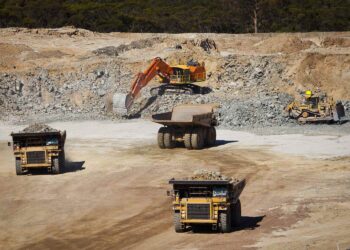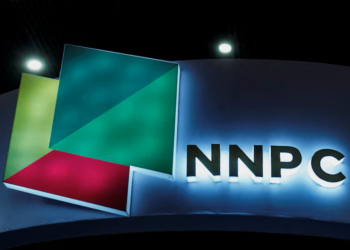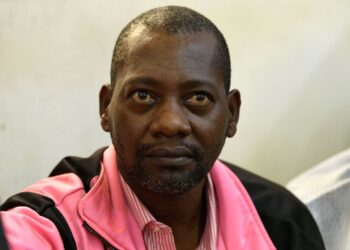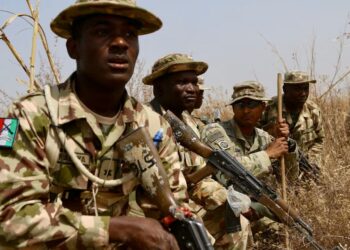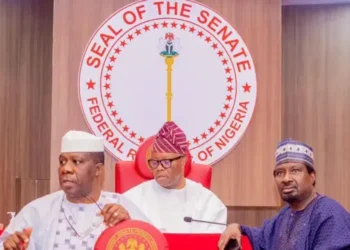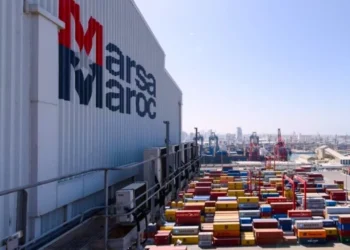By Franzisca Zanker*, Amanda Bisong*, & Leonie Jegen*
For Niger, Mali and Burkina Faso, a recent decision to withdraw from the Economic Community of West African States (Ecowas) has thrown up questions about how they will navigate regional mobility in future.
Ecowas covers a variety of sectors, but migration is a major one. The bloc’s protocols since 1979 have long been seen as a shining example of free movement on the continent. They gave citizens the right to move between countries in the region without a visa, and a prospective right of residence and setting up businesses.
As multidisciplinary scholars we have previously researched migration governance in west Africa, at the regional level, and in particular contexts like Niger.
We argue that Niger, Mali and Burkina Faso have much to lose if their departure from Ecowas curtails mobility. But it is likely that informal mobility will continue anyway.
Why free movement matters
In September 2023, the three countries created a mutual defence pact, named the Alliance of Sahel States. This indicated their solidarity in dealing with insecurity.
Yet they also depend on neighbouring countries in the region, which puts these three countries in a difficult position.
The three countries that announced their withdrawal from Ecowas are connected in a web of mobility. Notably, Niger, seen as a key transit country for refugees and other migrants on their way to Europe, received major funds and support from the European Union to prevent onward migration to Libya and beyond.
One central measure was Loi 2015-36, a law which punished people transporting migrants with fines and prison sentences. The law was mostly developed by external actors and had detrimental effects on the local economy. It also made migration journeys across the Sahara desert even more dangerous.
In November 2023, the law, which arguably violated the principles of free movement under Ecowas, was repealed by the Nigerien coup leaders.
Mali is another major transit country in the region, as well as a country of origin for regional migration. It has a complicated history of migration cooperation with Europe.
Of less relevance to Europe, but more for regional dynamics, Burkina Faso is at the centre for regional migration, often seasonal. Labour migration supports Côte d’Ivoire’s cocoa industry. After withdrawal from Ecowas, such labour migration may be difficult unless people resort more to informal migration.
As we have shown in our previous research, informal mobility has always existed along with formal mobility governance. Official border crossing points are often not used, despite the legal requirement to do so.
Hence, leaving Ecowas may increase corruption and problems of harassment at formal border crossings as well as increased use of mobility facilitators, or “passeurs”. These are people who negotiate passage through formal border crossings and organise journeys through other routes.
The legal gaps that the current situation creates could be very expensive for businesses and individuals. People may in the near future require visas. And for those who have migrated regionally, the right to stay in a country of residency may soon be under threat.
An immediate exit
Days after they announced their withdrawal from Ecowas, Mali, Burkina Faso and Niger insisted they were not bound by rules stipulating a one year notice period before their final exit.
The announcement about leaving Ecowas outside the normal regulations was dramatic, but not unexpected. Military governments that took power in a series of coups in August 2020 and May 2021 in Mali, September 2022 in Burkina Faso and July 2023 in Niger rule the three countries.
Ecowas has exerted political and economic pressure on the three countries to return to constitutional rule, through sanctions and the threat of military intervention.
In Niger, for example, Ecowas closed official border crossings, cut off more than 70% of electricity, and suspended financial transactions with other countries in the region.
International assets were frozen and international aid halted. Even before the coup, 3.3 million people in Niger experienced acute food insecurity.
The Ecowas sanctions made daily life even worse and in all likelihood added to the popularity of the coup leaders.
Similar sanctions were applied in Mali. The population has suffered as a result and the effectiveness of the sanctions is questionable.
Sanctions in Burkina Faso included travel bans against members of the military government.
Potential ways ahead
For Niger, Mali and Burkina Faso, there are several considerations when it comes to regional mobility in their post-Ecowas era. These may include exploring the provisions of the West African Economic and Monetary Union; a return to bilateral agreements with individual neighbours; or relying on the African Union Protocol on Free Movement.
Monetary union: The three countries are still part of the West African Economic and Monetary Union (Waemu), a union around the common currency, the CFA franc.
The regional monetary union also has provisions for free movement of people and goods across its member countries. With this option, access to seaports, a major issue for all three landlocked countries, is ensured through other members of the monetary union, including, for example, Senegal.
On the downside is the fact that a major argument for leaving Ecowas was the perceived role of external influence over the regional bloc. The strong anti-imperialist discourse of the military governments does not bode well for the regional monetary union either. The union is the institutional framework for regional monetary policy over which France continues to exert significant influence.
Burkina Faso has already announced its intention to leave the monetary union too.
The West Africa Economic and Monetary Union also excludes major trading partners like Nigeria – of major importance to landlocked Niger for food supplies. Trade and commerce between Nigeria and Niger provides a lifeline and is among the most intense areas of cross-border activity in west Africa.
For these reasons, the regional monetary union option seems an unlikely alternative.
Bilateral agreements: Another option for the three countries could be a return to bilateral agreements with individual countries to facilitate free movement. This can be likened to what former Ecowas member Mauritania, which left in 2000, did.
However, at the moment, given the sanctions, this option is off the cards, and could take many years to work out.
African Union protocol: At a continental level the African Union Protocol on Free Movement may offer a distant way forward. So far only 32 countries have signed it and four have ratified it, among them Mali and Niger (Burkina Faso is a signatory).
One way to move forward would be for countries to ramp up ratifications of this document, to ensure that cooperation on free movement can continue whatever happens to Ecowas.
Of course, other countries within Ecowas could also unilaterally open up for visa-free entry like Rwanda or Kenya have done, though the process has had its hiccups.
Such visa arrangements are also unlikely to include the rights of residence and establishment guaranteed under the Ecowas framework.
Given the current political context, an institutionalised option seems unlikely in the near future. The most likely option would be that migration will simply continue – informally.
________________
* Senior research fellow, Arnold Bergstraesser Institute
* PhD candidate, Vrije Universiteit Amsterdam
* PhD Candidate, University of Amsterdam
















































